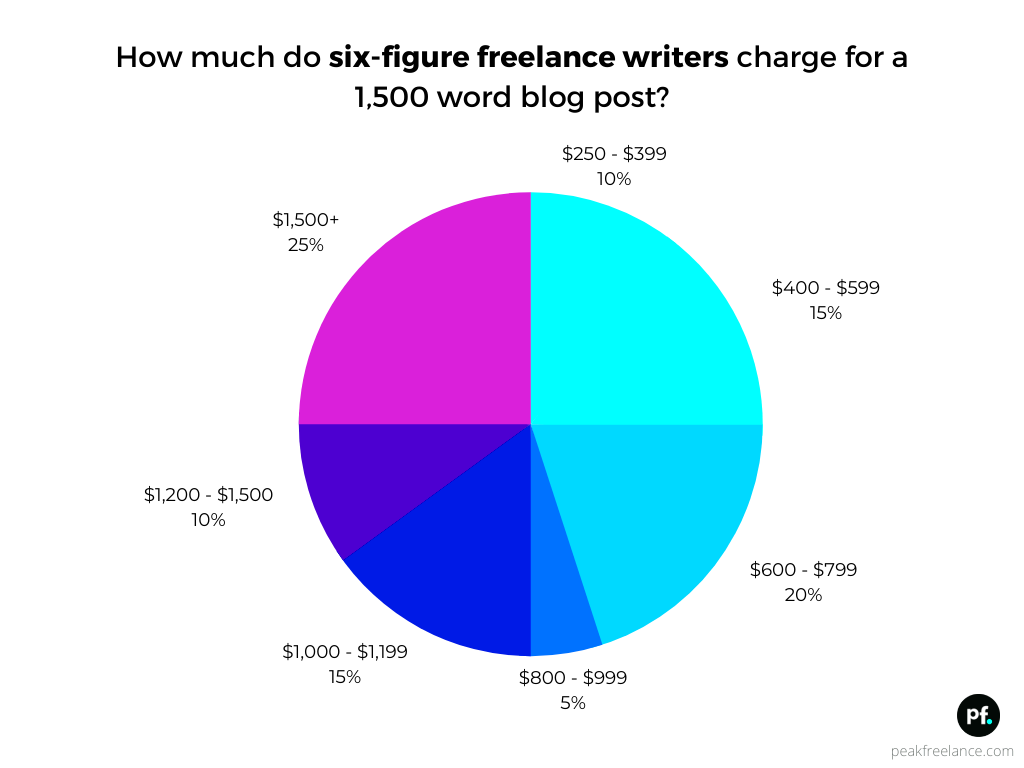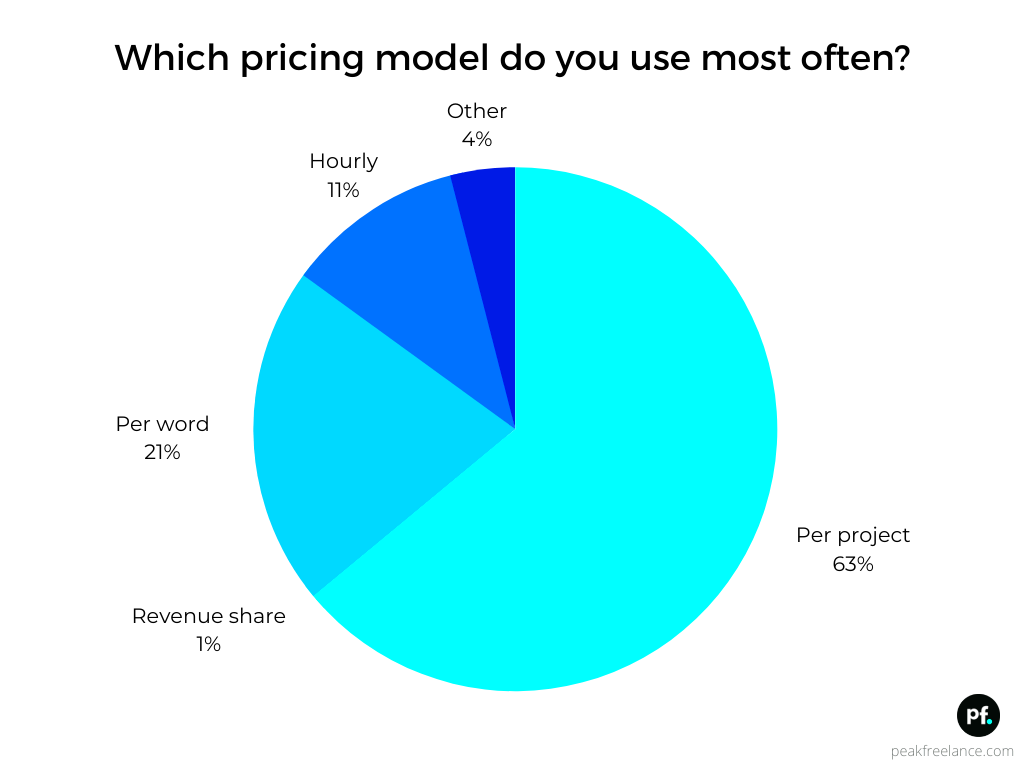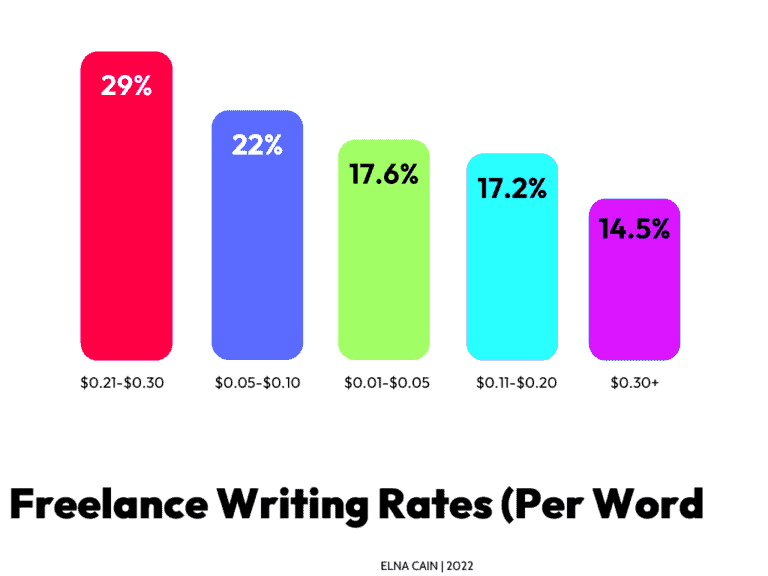It is a rewarding job to be a freelance writer; however, one of the most difficult things is determining what to charge. It can vary greatly when it comes to pricing, which is why you should establish fees that correspond with your skills, experience and what you give clients. Understanding the fundamentals of freelance writing pricing is crucial in ensuring that you are paid fairly for the time and resources invested in your written materials.
The decision of whether to charge hourly, per word, or a flat fee for the whole project is something that most consultants go through in their minds. Each method has its own advantages and disadvantages:
- Hourly Rate: This is great for projects with unclear scopes, but it can lead to uncertainty for clients.
- Per Word: Charging by the word is common for articles, ensuring you get paid for every single word you write.
- Flat Fee: A set price for a project can provide clarity, but you need to ensure you accurately estimate the time involved.
In conclusion, your price should indicate what you’re worth and what kind of quality you offer; it should also still allow you to compete within the market.
Factors That Affect Your Writing Rates

Your freelance writing service prices can be affected by a number of aspects. To know it better, consider these aspects:
- Experience: More experienced writers can charge higher rates. Clients are often willing to pay a premium for proven expertise.
- Type of Writing: Specialized writing, such as technical or medical writing, typically commands higher fees due to the expertise required.
- Client Budget: Some clients have strict budgets, while others are willing to pay more for quality work. Researching your client can help you gauge what to charge.
- Project Scope: The complexity and length of the project can impact your rates. Larger, more complicated projects usually warrant higher fees.
- Market Demand: Rates can fluctuate based on market trends. If there's a high demand for content in a particular niche, you can charge more.
For you and your clients, developing a pricing scheme that suits them will be made possible by working on these aspects together.
Also Read This: How to Get Your First Order on Fiverr: A Step-By-Step Guide for 2019
Setting Your Rates Based on Experience

Your rates are heavily influenced by your background as a freelance writer. Use this straightforward framework to establish your charges depending on how far you have come in the industry:
| Experience Level | Typical Rate (per hour) | Typical Rate (per word) |
|---|---|---|
| Beginner (0-2 years) | $15 - $25 | 0.05 - 0.10 |
| Intermediate (2-5 years) | $25 - $50 | 0.10 - 0.30 |
| Advanced (5+ years) | $50 - $100+ | 0.30 - 1.00+ |
Don't wait to increase your prices as you progress and create a portfolio. Clients will value your expanding knowledge; thus, you will also be surer of your value.
And don’t forget that even though you have amassed a lot of experience in what you do, it’s not the only thing that deserves to be reflected in your rate. Rather its quality and value ought to dominate on the rates that you charge for any project
Also Read This: Should I Trust Fiverr? An In-Depth Analysis
Types of Writing Projects and Their Pricing

Freelance writing rates can be significantly affected by the type of project you undertake. The various skills, research and time required for different types of writing projects should be reflected in your pricing. This article will explore some common types of writing projects taken up by freelance writers and their pricing structures.
Herein below are many popular types of writing tasks together with their approximate costs:
- Blog Posts: Prices typically range from $50 to $300, depending on the length and complexity. For instance, a 1,000-word blog can average around $100 to $150.
- Articles: Articles can vary greatly based on the publication. Freelance writers might charge between $100 and $500 for a 1,500-word article for online magazines.
- Copywriting: This involves persuasive writing for advertising or marketing. Rates often range from $100 to $1,000+ depending on the project scope.
- Technical Writing: This specialized field often commands higher rates, typically between $50 and $150 per hour or $0.25 to $1 per word, due to the expertise required.
- Social Media Content: For posts and captions, writers might charge $50 to $300 depending on the frequency and platform.
Comprehending rates for varied writing assignments is important in order to place yourself well and get paid well for your work.
Also Read This: How to Avoid Cancellation on Fiverr
How to Calculate Your Hourly Rate
Freelance writing can be an overwhelming sphere especially when it comes to calculating your hourly rate but it shouldn’t be! It is important to value yourself and price your time wisely. Below is a simple formula for working out how much you should charge for one hour.
Start by weighing in on what you want your income to be per year. For instance, say you expect that it would be around $60,000 annually then this is one way to disintegrate it . The essence of this initiative is to have a better understanding on how much money needs to be made for the purpose of satisfying one’s desires and requirements in life.
- Determine your working hours: Assume you plan to work 40 hours a week for 50 weeks a year, which totals 2,000 hours.
- Calculate your base hourly rate: Divide your desired income by the total number of working hours. In this case: $60,000 ÷ 2,000 = $30/hour.
- Factor in expenses: Don’t forget to include expenses such as taxes, software, and any other costs. Add about 20-30% to your base rate to cover these.
- Adjust for experience: If you’re more experienced, you may consider raising your rate. For instance, if you decide on a 20% increase: $30 + ($30 x 0.20) = $36/hour.
Using this approach, one can set a rate that fulfills the financial aspirations and also mirrors their worth as an author.
Also Read This: What Does 5 Rendering Mean on Fiverr?
Common Pricing Models in Freelance Writing
In freelance writing anything to do with payment rates, a comprehension of the distinct pricing approaches enables one select a better option for them. Each pricing model brings along benefits that can affect one’s negotiations with a customer. Below are some of the most popular pricing models.
- Hourly Rate: This model involves charging clients based on the number of hours you work. It’s great for projects where the scope is unclear, but clients may hesitate if they’re unsure of the total time required.
- Per Word: Many writers charge by the word, which can be beneficial for both parties. It provides transparency and allows clients to budget more effectively. Rates typically range from $0.05 to $1 per word.
- Flat Fee: This model is ideal for well-defined projects. You agree on a set price for the entire project, which can be attractive to clients who want to avoid surprises.
- Retainer Agreements: If you have ongoing work with a client, a retainer can be beneficial. This involves charging a fixed amount each month for a certain number of hours or deliverables, providing stability for both you and your client.
Pricing structures may be determined by your needs, the characteristics of your undertaking or the strategy that suits your clientele. Testing various methods could lead you to discover an appropriate one for your style of freelance writing.
Also Read This: Why Isn’t Fiverr Sending Messages? Understanding Common Issues and Solutions
Negotiating Rates with Clients
For beginners in freelancing, negotiating rates with clients can be a scary process. Still, it is an important skill which can transform one’s earnings and enhance their job satisfaction. The important thing about negotiations is to get ready and be courageous. Below are some suggestions for navigating this conversation effectively.
First, grasp how much value you bring forth. Understand what other writers in this field are charging and decide on the rate that is acceptable to you. Below is a straightforward technique for settling your charges:
- Know Your Value: Be ready to explain why your rates are justified. Highlight your experience, unique skills, and the quality of your work.
- Be Flexible: While it’s important to know your worth, be open to discussions. If a client has a strict budget, consider offering different service levels or package deals.
- Practice Active Listening: Pay attention to the client’s needs and concerns. This can help you tailor your proposal to better suit their budget while still ensuring you’re compensated fairly.
- Stay Professional: Always approach negotiations with professionalism. Be polite and respectful, even if the client pushes back on your rates.
- Follow Up: If a client needs time to think about your proposal, don’t hesitate to follow up. This shows your commitment and interest in the project.
Rehearsal enables smooth rate negotiations that can consistently take place over the course of the freelance life that leads to proper remuneration and stability in client dealings.
Also Read This: Can I Create Multiple Gigs on Fiverr?
Frequently Asked Questions
There are numerous queries concerning freelance writing rates and issues related to them. The following are some of the common questions raised:
- What should I charge as a beginner? As a beginner, you might charge anywhere from $15 to $25 per hour or $0.05 to $0.10 per word. As you gain experience, you can gradually increase your rates.
- How do I know if my rates are competitive? Research industry standards and see what other writers in your niche are charging. Platforms like Fiverr and Upwork can provide insights into current market rates.
- What if a client can’t afford my rates? If a client’s budget is limited, consider offering a lower rate for a smaller project or find ways to adjust the scope without compromising quality.
- Can I raise my rates for existing clients? Yes! It's completely acceptable to raise your rates, especially after completing a set number of projects. Just provide notice and explain the reasons for the increase.
- Should I charge more for rush jobs? Absolutely! Charging a premium for tight deadlines is standard practice in freelancing, as it reflects the urgency and extra effort required.
When you deal with such inquiries, chances are that it would help you to be more assertive while taking a walk through the cloudy world of freelance writing and its costs.
Conclusion
In case you didn’t know, it may be a daunting task for freelance writers to set their rates; however, with adequate techniques and insights in place, you can develop a pricing framework that suits you best. Do not forget that your worth depends on what you are good at and how experienced you are, as well as how much value you add to the customer. It is good if at this point one gets acquainted with the various kinds of writing assignments out there in addition to the determinants of pricing.
Be not afraid to talk about the amount you get paid. In order to get the salary you really want, it is essential to communicate effectively and be self-confident during negotiations. Furthermore, as your career progresses and you gain more skills, do not hesitate to evaluate and adjust your prices respectively.
Freelancing involves more than just writing; it is the management of your venture too. With the correct knowledge and techniques, you can achieve a productive freelancing career in this field!




